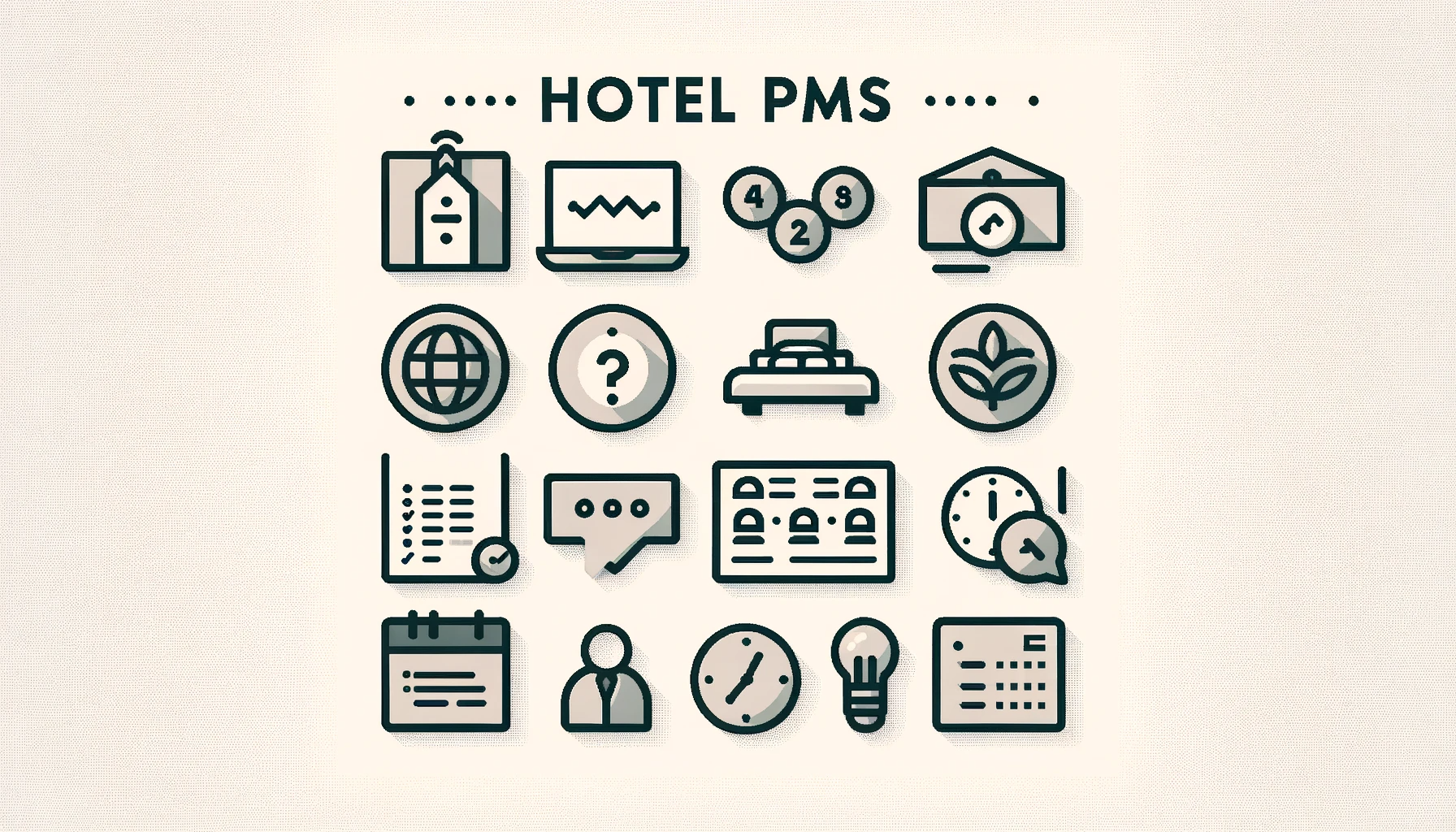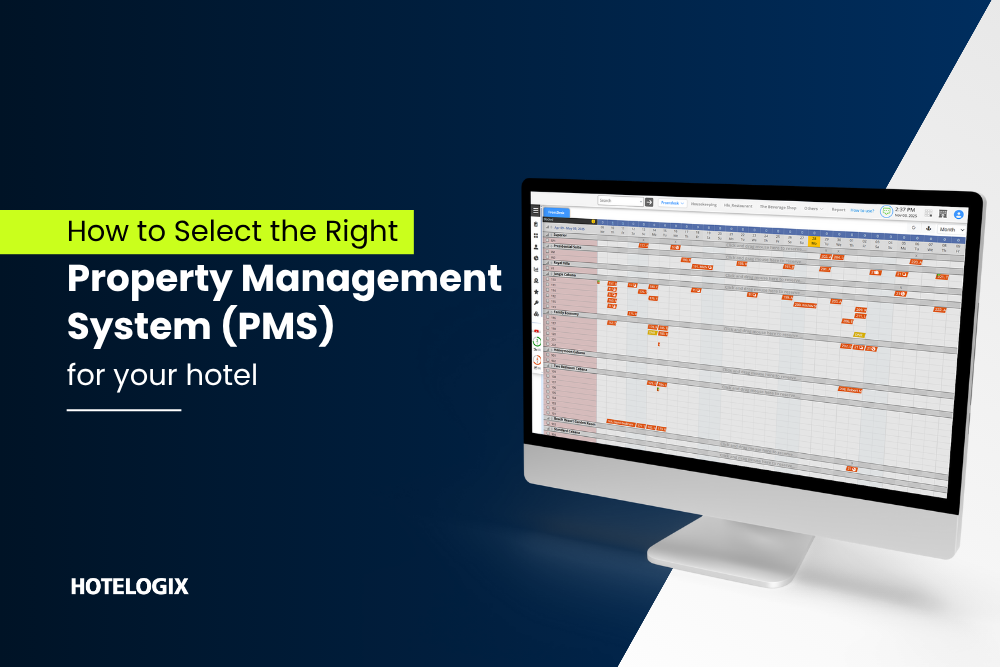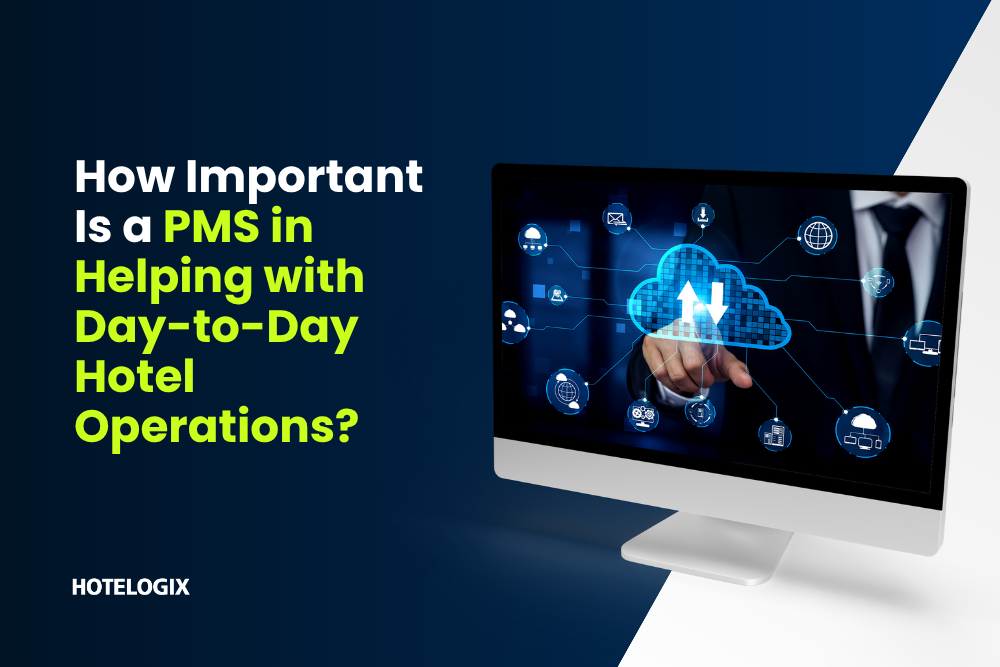Managing daily hotel operations is undoubtedly a complex and stressful task. However, with the right technology, hoteliers can handle it easily and efficiently. Oh yes. You are right. We are talking about the Hotel Property Management System, also called the Hotel PMS System. It is THE MOST critical piece of hospitality technology solution that automates daily operations, saves time, reduces errors, and improves staff productivity. In fact, today, when we say digitization of hotel operations, it indicates the adoption of the Hotel PMS System. In this blog, we will learn everything about the Hotel PMS System. Stay tuned.
Types of Hotel PMS System for hotels
On-premises Hotel PMS: It refers to the Hotel PMS hosted on-site at a hotel. It is also called legacy or server-based Hotel PMS. From servers to the software, everything is installed at the property.
Cloud-based Hotel PMS: It is hosted on the cloud. Hotels can access it via web browsers or an API integrated with desktop or mobile OS.
Cloud Vs. On-premises Hotel PMS System- which one is ideal for hotels?
Well, let’s look at it from three perspectives that are pretty important for hotels.
Cost
Legacy
- Upfront license fee and AMC
- Longer lock-in period
- Costly servers and other IT hardware
- Requires a dedicated IT team
- Costly hardware and software upgrades
- Needs investment in data security
Cloud-based
- Flexible pricing with a subscription-based model
- Zero license fee, no AMC
- No investment in costly servers
- No need to have an IT team
- Software upgrades are free
- The Hotel PMS vendor takes care of data security
Verdict: Cloud-based Hotel PMS System helps hotels save by reducing their software ownership costs.
Operational efficiency
Legacy
- Time-consuming implementation and delayed go-live process
- Offers no mobility, doesn't allow anywhere and time access to hotel data
- Complex integration with third-party solutions
- Doesn't help hotel groups with centralized control
Cloud-based
- Simple and quick implementation, leading to a quicker go-live timeline
- Allows users to access the PMS on the go over the web, mobile, tab, or via A Mobile PMS App
- Seamless and two-way integration with third-party solutions
- Enables hotel groups with centralized control via single sign-on
Verdict: Cloud-based Hotel PMS Systems score over legacy solutions for boosting a hotel's overall operational efficiency.
Revenue increment
Legacy
- Doesn't support real-time OTA/online distribution
- Doesn't help with generating bookings via the hotel website
- Doesn't support creating multiple packages to attract more guests
- Doesn't allow setting up unlimited POS outlets
Cloud-based
- Integrates with channel manager for more bookings via OTAs and metasearch engines
- Integrates with booking engine for incremental direct booking via the hotel website
- Allows creating multiple packages targeting guests based on demand and their length of stay
- Enables setting up unlimited POS outlets at no extra cost to sell more non-room items
Verdict: Cloud-based Hotel PMS System emerges as the clear winner as it helps hotels boost their revenue in several ways.
Must-have features of a Hotel PMS System
As stated above, a Hotel PMS System or a hotel management software automates and streamlines daily operations across all the departments. That's why hoteliers must consider critical features and functionalities while selecting the right one for their properties.
Front Office: It allows a hotel's front desk staff to view and update room status, including availability. It lets them assign rooms to guests and offer check-in and check-out facilities. It also aids in managing reservation cancellations and modifications, accepting reservations, sending confirmation emails, extending self-service facilities to guests, processing payments, etc. Oh, yes. Most importantly, it captures guest details and stores them in a central repository for easy access.
Housekeeping: It connects housekeeping and the front office for better clarity on up-to-the-minute room status. Other critical aspects are assigning housekeepers to maintain rooms, managing room-keeping schedules, and tracking inventory such as linen and cleaning supplies.
Accounting Management: It automates the accounting processes of hotels, such as billing and invoicing. It also produces various financial reports, including expense reports, accounts receivables, and payables. Leading Hotel PMS systems can integrate with third-party accounting solutions to meet specific hotel requirements.
Material Management: It helps hotels efficiently manage their stocks. It aids in effective planning, sourcing, storing, tracking, and controlling materials to ensure the availability of essential items 24/7 against consumption. It also helps hotels avoid stock-out situations and eliminate revenue loss that could arise due to item theft or damage.
Point of Sale: This feature in the hotel PMS enables hoteliers to easily configure and set up necessary POS outlets, such as restaurants, F&B outlets, pubs, gyms, spas, and gift shops, to generate additional revenue beyond room charges. It automatically synchronizes all the invoices with the Hotel PMS. It also captures types of discounts, refunds, and category-wise POS details and ensures sales are posted on appropriate account heads.
Reports: This is very critical. Advanced cloud-based Hotel PMS Systems generate 100+ lucid reports on a daily basis. They include history and forecast reports, hotel revenue reports, hotel reservation reports, night audit reports, MIS and manager flash reports, and many more. These reports help hotels make data-driven decisions to improve business outcomes.
Contactless Guest Service: This is another critical feature of a Hotel PMS that boosts guest experiences. It enables hotels to allow guests to check in/out, unlock their rooms, make payments, and raise service requests using smartphones.
Third-party integration capabilities of a Hotel PMS System
A Hotel PMS System should integrate with a range of best-in-class third-party solutions. Here are a few essential integrations:
- Channel Manager: With a two-way seamless connectivity, it helps hotels with real-time update of rates and inventories across OTAs and metasearch engines. It improves a hotel's online visibility and sales while eliminating overbooking.
- Booking Engine: It aids in generating more direct bookings via the hotel's website and Facebook pages. Most importantly, direct bookings help hotels save on booking commission costs.
- Revenue Management System: It simplifies the process of revenue management or room pricing - the most complex task. It suggests or automatically changes room rates based on the compset's rates, guests' booking window, length of stay, demand, and many other factors. The primary objective is to help hotels sell more at the best rates to the right guest to boost occupancy and revenue.
- Online Reputation Management Tool: It allows hotels to see guests' feedback and ratings from all the leading platforms in one place. This consolidated view assists hotels understand how guests are looking at their brand and can take corrective measures accordingly. This tool is convenient when it comes to understanding guest sentiment.
- Customer Relationship Management (CRM): It plays a critical role in streamlining marketing activities at a hotel. It empowers hotels to segment guests and run targeted promotional campaigns to sell more rooms. It also helps in upselling and cross-selling for more revenue.
There are so many other features that are operationally imperative for hotels. It would be great if the Hotel PMS System you want to pick up allows easy rate management, scheduled emailing of reports, guest feedback collection, and others. Most importantly, the solution should be easy to use for your staff, and the vendor should offer 24/7 multi-channel support to ensure that your hotel is up and running all the time. All in all, it should help you save time and costs, sell more, and serve guests better to gain the competitive advantage.





